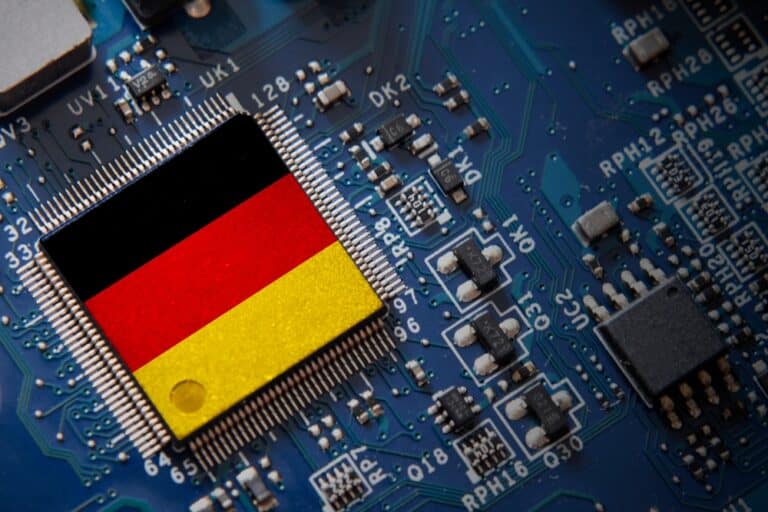Nvidia and Deutsche Telekom are investing €1 billion in a new German data center for AI. Construction of the facility, one of the largest in Europe, will begin in the first quarter of 2026. Germany’s aim is to build an AI ecosystem to compete with the US and China. However, the investment lags far behind US projects.
The plans were announced Tuesday at an event in Berlin with Nvidia CEO Jensen Huang and Deutsche Telekom boss Tim Höttges. Executives from SAP and Deutsche Bank were also present, as were two German ministers. “We are bringing Nvidia AI and robotics to start a new era of industrial transformation in Germany,” Huang said. The project is set to become one of Germany’s largest deployments of advanced AI chips.
Details of the German data center
The facility will be an extension of an existing data center in Munich. Deutsche Telekom says it will increase Germany’s AI computing power by about 50 percent. The project will deploy up to 10,000 GPUs. SAP is a key partner in the data center’s architecture. The scale of the project sounds impressive, but it stands in stark contrast to American plans. The Stargate location in Abilene, Texas, for example, will deploy approximately 450,000 GPUs. These will be GB200 ‘superchips’, the most powerful Nvidia GPUs in 2025, while the reports do not indicate which chip will be installed in Munich.
In February, the European Union announced a €200 billion plan to support AI development in the region. The goal is to triple the capacity for AI systems over the next five to seven years. Deutsche Telekom is talking to other companies about participating in the construction of so-called AI gigafactories. However, the process is slow, and the EU has not yet worked out exactly how it will evaluate bids and allocate funding, Bloomberg reports.
Backlog is growing
The scaling up of data centers worldwide is causing problems everywhere. Even in the US, where Project Stargate, led by Oracle, SoftBank, and OpenAI, represents hundreds of billions of dollars, there is a power shortage. Both Microsoft and Amazon recently emphasized this. In Europe, there are several obstacles to the rollout of AI. Firstly, US President Trump hopes to enforce that the most powerful Nvidia chips remain in the US. In addition, the relevant companies for AI infrastructure are almost always non-European, which means that our continent is not a priority. On top of that, regulations and a lack of government investment are leading to delayed, limited-scale projects.
